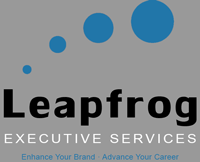Your Professional Stress Test
Category : 2021
“The most serious mistakes are not being made as a result of wrong answers. The truly dangerous thing is asking the wrong questions.” (Peter Drucker)
Most people welcome the news they need a heart stress test with about the same enthusiasm they throw at learning it’s time for a colonoscopy. In both scenarios, the patient isn’t very keen on the procedure. But what makes both events daunting is the anticipation that the conversation afterward might bring the individual face-to-face with information they don’t want to hear.
Reverting to Drucker’s comment at the top of this article—any of us can be tempted to adopt the strategy that says, “If I don’t ask the question, I don’t have to deal with the answer.”
A heart stress test evaluates how well your heart handles the workload you give it. The simple activity of walking on a treadmill or riding a stationary bike can expose potential problems and help a doctor prescribe the best plan of treatment. In response to the financial crisis a few years ago, financial institutions are required to conduct computer-simulated stress testing to analyze how a bank, its financial portfolio, and the institution’s internal controls would handle a drastic and unexpected economic shift. At a personal level, there are a plethora of assessments, evaluations, and even silly questions you can use to assess your internal responses to the circumstances and events of your life.
Whether targeting your physical health, unexpected events, or your responses to what happens, it is helpful to remember—
We don’t fall apart because of life’s pressures. We fall apart when we respond to life’s pressures with inadequate resources.
Men and women and the companies they lead demonstrate endurance, resilience, and even growth in good, bad, and ever-changing circumstances when they know survival doesn’t depend on the right set of conditions as much as it depends on responding to life’s situations with adequate resources.
Ten years ago, Harvard Business Review featured Stress-Test Your Strategy: The 7 Questions to Ask by Robert Simons (https://hbr.org/2010/11/stress-test-your-strategy-the-7-questions-to-ask). Though directed at a business, with slight adaptation, Simon’s questions offer a valuable framework for stress-testing a professional’s career strategy. A few minutes invested in answering these questions might expose an area of vulnerability that you would be wise to address as you engage with 2021.
- Who is your customer? Periodically ask yourself who or what motivates you to do what you do. The need for clear focus and a balanced perspective never diminishes.
- What values drive you? A lack of congruence between our values and our actions clouds our vision and complicates decision-making.
- How do you measure success? We all face the possibility the ladder we’re climbing with determination and relentless effort might be leaning against the wrong wall.
- What do you do with the inherent tensions in life? Decisions always involve logic and emotion. Every action carries with it a level of risk. The need to balance timely action with prudent reflection never goes away. Successful leaders leverage tension—they don’t avoid it.
- How do you create accountability? One of the risks inherent in career progression is having fewer people in your orbit that challenge you and ask hard questions. Wise leaders choose to be accountable before they are told to be accountable.
- How prepared are you for the unexpected? If 2020 taught us anything it was the cold reality that when you think things can’t get worse—the can and do. Personally and corporately, planning for contingencies and the unanticipated is a life habit more than an annual exercise.
Health experts tell us that beyond fundamental health and lifestyle choices, physical fitness is measured by three things—strength, endurance, and flexibility. Professional fitness can be assessed the same way—having the resources you need, staying at it when you want to quit, and adapting to changes as an expected part of life.
